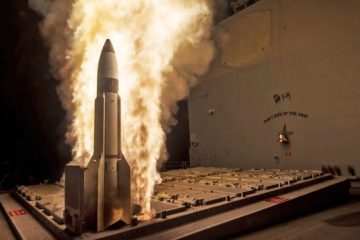The Ship-to-surface Ballistic Missile program for the development and procurement of a new ship-launched ballistic missile for precision attack on major enemy targets over long distances. The research and development work will be conducted by South Korea’s Agency for Defense Development (ADD).
In order to fast track the program, the “research” phase will be skipped and the program will start directly from the “system development” stage, under the supervision of the ADD. System development and detail design will be carried out by 2028, with a project cost of 237.1 billion won ($176 million USD). Mass production is expected to begin in 2028 or 2029.
The total program duration, including the production of the final missile, is until 2036, and the total program cost is about 680 billion won ($506 million USD).

The Ship-to-surface Ballistic Missile is set to be fitted aboard three types of Republic of Korea Navy ships:
- the new KDX-III Batch-II (Jongjo the Great-class) Aegis destroyers;
- the future Korean Next-Generation Destroyer (KDDX);
- the future Arsenal ship (known locally as Joint Strike Ship)
The ballistic missile will be launched from the Korean Vertical Launch System-II (KVLS-II). The development timelines of the Ship-to-surface Ballistic Missile and KVLS-II are similar.



According to the data from the ‘Advanced Defense Industry Fair 2023’ and the ‘Defense Capability Improvement Program’, the shape of the Ship-to-surface Ballistic Missile is similar to that of South Korea’s submarine launched ballistic missile (known as Hyunmoo-IV-4 SLBM) and the range is estimated to be more than 800 km in order to neutralize major facilities in all regions of North Korea from the ship, and it is expected to have extreme precision.
Hyunmoo-IV-4 can achieve high penetration against North Korea’s underground facilities by mounting a penetrating warhead and has strong anti-jamming functions such as the Hyunmoo missile series, one of South Korea’s major strategic weapons systems. Hyunmoo-IV-2 will feature similar capabilities.
The committee said the Ship-to-surface Ballistic Missile program is expected to deter potential threats from the enemy and to have early response capabilities to North Korea’s nuclear and ballistic missile threats in case of emergency, as well as improve the ability to develop ship-laucnhed ballistic missiles.






